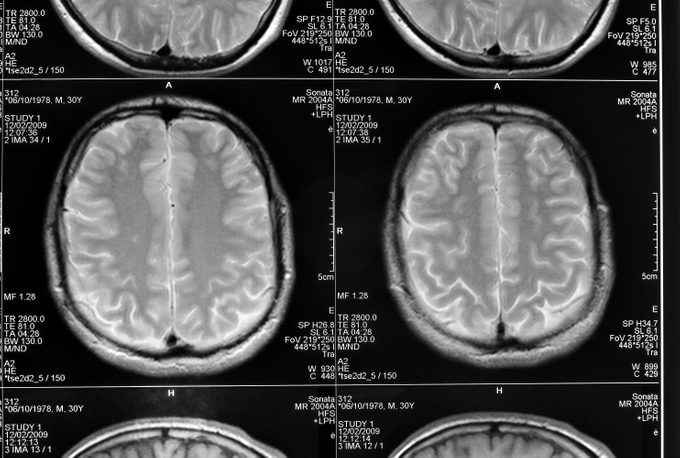Munchausen Syndrome by Proxy: The Rare Mental Health Problem Behind the Gypsy Rose Case
Updated: Mar. 23, 2021
Based on a true story, the Hulu show "The Act"—starring Patricia Arquette—is shining a light on an unusual form of child abuse known as Munchausen syndrome by proxy.

When Gypsy Rose Blanchard, a 24-year-old who had been confined to a wheelchair for most of her life, was charged in the murder of her mother Dee Dee in 2015, those who knew the two were in shock. Gypsy had a history of leukemia, asthma, muscular dystrophy, severe allergies, and other illnesses, and her mother was her doting caregiver.
But as the facts surrounding the murder began to unfold, it became apparent that things weren’t at all as they seemed. Dee Dee had made Gypsy behave as if she were ill and couldn’t walk; Dee Dee shaved Gypsy’s head (to make it look as if she were undergoing chemotherapy) and abused her in other ways. Experts believe Gypsy was the victim of a type of medical child abuse known as Munchausen syndrome by proxy. The shocking-but-true tale is the subject of a Hulu miniseries called “The Act” starring Patricia Arquette as Dee Dee. Other TV shows and movies have also shed light on this condition—a form of child abuse—and it’s left people with questions.
What is Munchausen syndrome by proxy?
Marc D. Feldman, MD, a Clinical Professor of Psychiatry and Adjunct Professor of Psychology at the University of Alabama in Tuscaloosa, has devoted his career to understanding the condition and other related disorders. “Munchausen syndrome by proxy occurs when a caretaker either feigns, exaggerates or induces illness in a child victim to gain attention and sympathy,” he explains. (Munchausen’s syndrome refers to acting as if you are the one who is ill. Both conditions are named for a fictional character—Baron von Munchausen—who was based on an 18th-century German officer known for exaggerating his war stories.)
Sometimes financial gain or other tangible rewards are the motivation. “This is called malingering by proxy,” he says. “It can start out as loving the attention and then shift to money over time,” he says. This was the case with Gypsy and her mom. Many sympathizers sent cash, Habitat for Humanity built them a home, and the Make-A-Wish Foundation sent them on multiple trips to Walt Disney World and gave them backstage passes to a Miranda Lambert concert.
How common is Munchausen syndrome by proxy?
“It is unusual, but I wouldn’t call it rare,” says Dr. Feldman. “It is bathed in deceit and we can only count cases where deception has been found out.” There are many barriers in diagnosing Munchausen syndrome by proxy, says Joni E. Johnston, a clinical and forensic psychologist in San Diego, California. “It’s not routine to question a mom when a child is ill.”
How does Munchausen syndrome by proxy happen?
Often the condition begins with real illness: Gypsy did have legitimate health issues soon after her birth. “Often, the child is viewed as impaired or imperfect in some way,” Dr. Feldman says. Another common denominator in cases is a lack of proper bonding between parent and child. For a small number of people, this may occur because a child spends days or weeks in a neonatal intensive care unit right after birth; in some cases, untreated postpartum depression may play a role, too. “The lack of bonding predisposes some moms to engage in this form of child abuse.”
“Having a sickly child can provide a person with an instant definition as to who they are and what they were placed on this earth to do,” Dr. Feldman says. His latest book, Dying to be Ill: True Stories of Medical Deception, details the lengths that some mothers go to harm their children and the toll it takes on their child victims.
Fathers are rarely the culprit in Munchausen syndrome by proxy, he says, though they may turn a blind eye to the abuse and fail to protect the child. “Many of the abusers have a history of Munchausen syndrome,” adds Johnston. “They may have started out by using their own illness to gain attention, and then they transferred it on to a child.” Identifying bizarre beliefs in yourself can be a challenge.
What are the consequences of Munchausen syndrome by proxy?
“Sometimes the child victim is pressured to continue the charade,” Johnston explains. “Children victims are raised from day one in a bizarre reality and told all of these things that later turn out to be blatant lies,” she says.
“Most victims are infants or not yet verbal, so there is limited capacity to speak out. When they are older they may feel helpless and have become very dependent,” Dr. Feldman says.
There are times when savvy health care professionals or keen observers grow suspicious and call attention to the matter. The first call to action is to get the child out of the toxic environment, he says. Recovery is a long and challenging road.
Munchausen syndrome by proxy survivors may remain physically or emotionally impaired, Dr. Feldman says. Many report depression and or post-traumatic stress disorder that overshadows their adulthood. Survivors of Munchausen syndrome by proxy are less likely to seek medical care as adults, which could lead to undiagnosed illnesses.
Gypsy is currently serving 10 years in prison after pleading guilty to second-degree murder in her mother’s death. Dee Dee wasn’t found out until after her death, but it’s unusual for perpetrators of Munchausen syndrome by proxy to get jail time for their abuse. “That’s unfair considering that the estimated mortality rate of Munchausen syndrome by proxy is as high as 9 percent, making it one of most lethal forms of child abuse,” he says. Caregivers may not always intend to kill their victims, but repeated induced illnesses can lead to death.
Another Munchausen syndrome by proxy case that made headlines involved the death of a five-year-old boy. While hospitalized, the boy’s sodium levels increased dramatically and he ultimately passed away. His mother, Lacey Spears, had documented her son’s long history of health problems on a blog and on Facebook. She was charged with second-degree murder for injecting sodium into the feeding tube in his stomach.
Not all Munchausen-by-proxy cases end in murder. Typically, parental rights are terminated and the parent may be placed on probation. Often times the victims may not even realize what happened until much later when their parents are removed from the house. “When the parent is taken away, it’s like losing a parent ten times over because even when mistreated, people still love their parents, and then they must come to grips with the reason their parent was taken away,” Johnston says.
What is Munchausen by proxy by Internet?
The advent of social media has further complicated this complex illness largely by offering up a new outlet for endless sympathy and attention. “There are instantly accessible and endlessly supportive groups out there that will pray with you and cry with you if you purport your child to be ill,” says Dr. Feldman who was the first to identify Munchausen by proxy by Internet.
“It used to be that these moms had to read up on procedures and medications and really decide how to sicken their child, but now you can take a shortcut for the same attention by posting about ‘suffering’ online,” he says.
If you suspect someone you know is a victim of Munchausen syndrome by proxy, call the National Child Abuse Hotline at 1-800-4-A-CHILD (1-800-422-4453).


